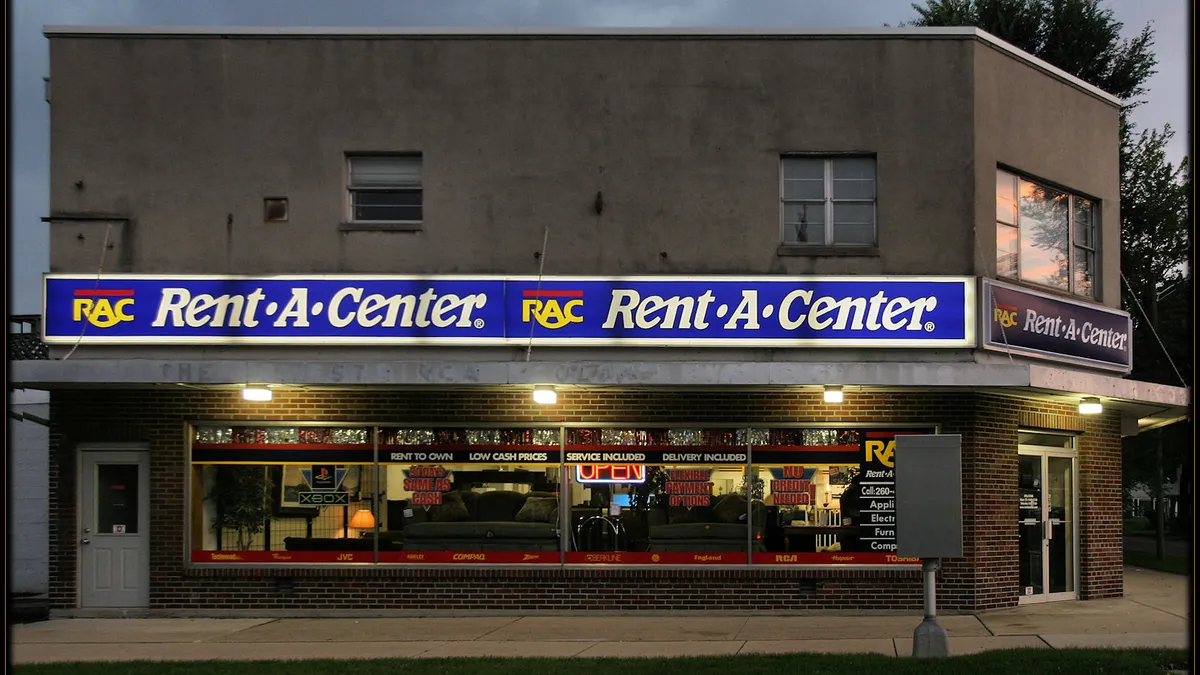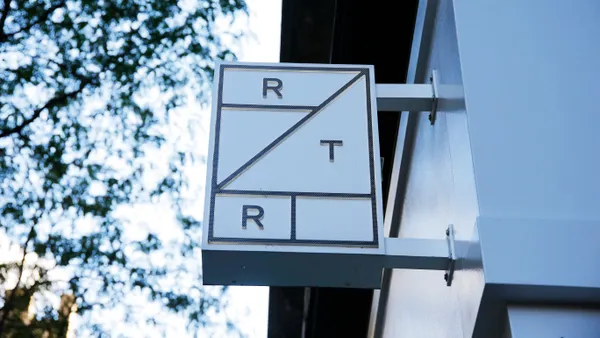Dive Brief:
- Rent-A-Center on Sunday said it had completed a strategic review of its financial alternatives and decided to stick with its own turnaround strategy rather than pursue a sale. "While the company actively explored a possible sale, the Board unanimously determined that it did not receive any acquisition proposals meeting either of its objectives for a sale of the company," the rent-to-own retailer said in a release.
- But apparently Rent-A-Center hasn't entirely closed the book on the possibility of a sale. In a statement Monday the company said that, after announcing the conclusion of its review, it received a letter with an increased offer from one of the interested parties it had been in talks with earlier.
- According to Rent-A-Center, the letter stated that it (the letter) "does not constitute an offer capable of being accepted or a binding agreement of any kind." Rent-A-Center added that "[t]he letter was not accompanied by equity commitment letters that would be necessary for the company to evaluate whether to enter into an agreement with an acquisition entity possessing no assets." Rent-A-Center, then, is not reviewing the new offer but said it "would carefully consider any credible proposal" with its advisors.
Dive Insight:
So, after a months-long review and activist fight over the future of the company, Rent-A-Center has finally decided to go it alone. Or maybe sell itself. It depends, apparently, on receiving a "credible proposal."
The rent-to-own retailer has come under pressure to sell itself amid declining sales, heavy profit losses and executive turnover. With new CEO Mitch Fadel at the helm, Rent-A-Center is trying to project confidence in its own business and its future to investors.
The company said Sunday that cost cutting efforts are "significantly ahead of schedule," and executives expect to save $70 million in 2018 from the cuts, up from earlier estimates of $43 million to $57 million of savings for the year. Moreover, the company said that its new domestic pricing model "is enabling us to increase loyalty amongst a larger customer base, growing our customer retention and helping customers achieve their goal of ownership faster than before."
For the year, management expects to make up to about $2.7 billion in consolidated revenue and adjusted EBITDA (earnings before interest, taxes, depreciation and amortization) of between $160 and $180 million. Rent-A-Center also said that operational performance "continues to exceed the company's internal expectations."
Pressure on Rent-A-Center mounted when Engaged Capital disclosed a 12.9% stake in February in a letter that also accused the Rent-A-Center board of being "asleep at the wheel" and urged a sale of the furniture and electronics rent-to-own company. Later in the month, the hedge fund nominated five people for three open positions on the board of directors.
Glenn Welling, Engaged Capital's founder and chief investment officer, wrote the board a private letter in December, saying Rent-A-Center's chief differentiator — its rent-to-own business — helped make the company "Amazon-proof," but that its reputation for predatory lending practices is an Achilles heel. Welling also detailed other problematic setbacks and criticized the abrupt departure days earlier of Rent-A-Center CFO Guy Constant.
The pressure has only intensified since. The company has been in turmoil, with Constant's exit quickly followed by the January resignation of CEO Robert Davis, who took over from founder Mark Speese in early 2014. Speese returned last April, about the time the retailer appeared on a Moody's Investors Service report naming it among the specialty retailers dragging down operating profit in the sector in 2017.













